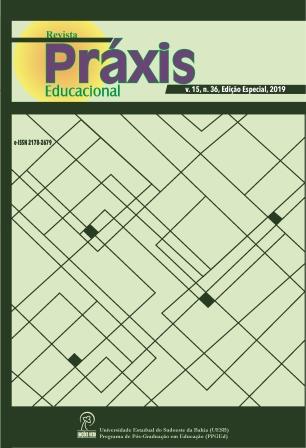HERMENEUTICS AND EDUCATION: IMPLICATIONS FROM THINKING OF HANS-GEORG GADAMER AND JÜRGEN HABERMAS
DOI:
https://doi.org/10.22481/praxisedu.v15i36.5912Keywords:
Education, Gadamerian hermeneutics, Habermasian communicative reasonAbstract
The present text aims to present the contributions of hermeneutic thinking residing in the theoretical postulates of Hans-Georg Gadamer and Jürgen Habermas. Therefore, it will be necessary to resort to the basic assumptions that form the founding structure of the thought of these two philosophers, as well as to weave a critical articulation between them and, later, to bring to the educational field as a way of highlighting the proper contributions to a human formation that it values both interpretative understanding and understanding among the subjects involved in the school context. Moreover, we consider that Gadamerian hermeneutics has become a reference for analysis and discussion in contemporary times, including education and philosophical thinking. With the Habermasian communicative theory we saw the emergence of a social theory proposal linked to the use of language as a form of mediation in interactions between subjects in a community of speakers and, in this sense, its main objective lies in the search for consensus established in the form of intersubjective understandings. Thus, in reflecting the contributions of Gadamerian hermeneutic theory together with the Habermasian social theory to educational processes, we consider it of vital validity since they share the legitimating premise of integration between individuals participating in a social context, either through tradition or even by unconditional dialogue mediated linguistically.












